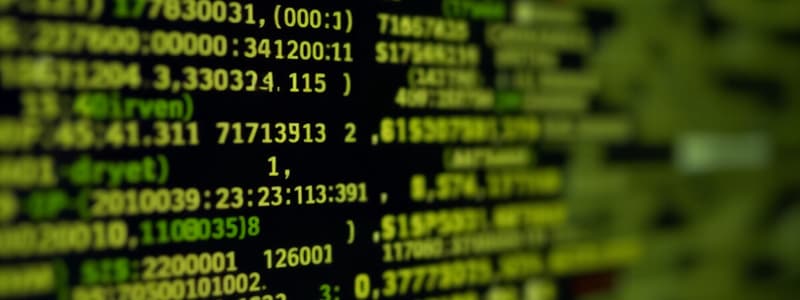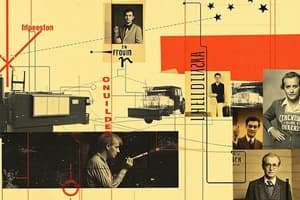Podcast
Questions and Answers
What is communication?
What is communication?
An intricate process of sharing ideas, thoughts, and information.
Which of the following is a key element in the communication process?
Which of the following is a key element in the communication process?
- Sender
- Receiver
- Message
- All of the above (correct)
Communication is a static process that does not change over time.
Communication is a static process that does not change over time.
False (B)
What does the term 'encoding' refer to in communication?
What does the term 'encoding' refer to in communication?
Feedback is only important in one-way communication.
Feedback is only important in one-way communication.
The final element in the communication process is the ______.
The final element in the communication process is the ______.
What are some mediums of communication?
What are some mediums of communication?
What is the purpose of feedback in the communication process?
What is the purpose of feedback in the communication process?
Flashcards are hidden until you start studying
Study Notes
Definition of Communication
- Involves intricate sharing of ideas, thoughts, and information.
- Key concepts:
- Idea: An opinion or belief.
- Thoughts: Products of mental processes.
- Information: Knowledge gained from research, study, or education.
- Opinion: A personal view or judgment.
Description of Communication
- Communication serves the common good by sharing experiences publicly.
- It is a continuous and dynamic process encompassing three critical elements: sender, message, and receiver.
Elements of the Communication Process
- Sender:
- The originator of the message, responsible for initiating communication.
- Message:
- The content including ideas, facts, feelings, and views that the sender intends to communicate.
- Encoding:
- The transformation of messages into symbolic forms (words, images, gestures) for effective conveyance.
Communication Methods
- Media:
- Channels used to transmit messages (e.g., oral, written).
- Includes various platforms such as telephone, internet, postal services, email, and fax.
- Decoding:
- The process by which the receiver interprets and understands the encoded message.
Final Elements of the Process
- Receiver:
- The individual for whom the message is intended, critical for successful communication.
- Success is when the receiver comprehends and reacts appropriately to the message.
- Feedback:
- The response from the receiver confirming the message was received and understood, thereby completing the communication loop.
Nature of Communication
- Two-way process:
- Involves active information exchange between sender and receiver.
- One-way process:
- Information transfer occurs from sender to receiver without feedback or interaction.
Ceremonial Communication
- Involves speeches and tributes during significant events like victories, losses, or welcoming dignitaries.
- Common forms include welcome speeches, eulogies, and poems for tribute or lamentation.
Studying That Suits You
Use AI to generate personalized quizzes and flashcards to suit your learning preferences.




